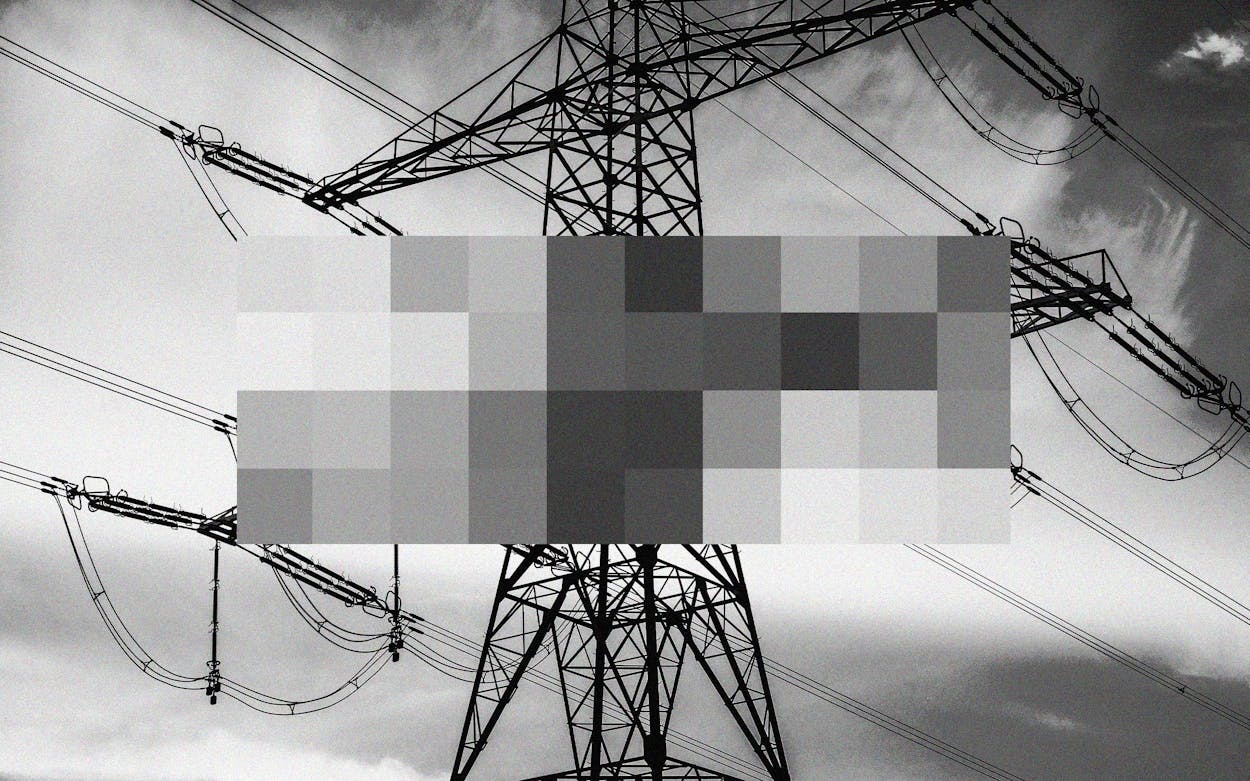Lawyers for Texas cryptocurrency miners will appear in a Waco courtroom today with a request: Please don’t let everyone know how much electricity we use.
“Mining” is a misleading term. There’s no drilling into rock involved. Crypto miners dedicate thousands of computers to solving math problems of increasing complexity in order to reap Bitcoin—or some other virtual currency—as their reward. These machines often occupy enormous buildings and draw massive amounts of electricity to operate their processors and keep them from overheating.
We don’t know exactly how much power gets used for this purpose, but in January, the federal government announced it would soon begin to require miners to report their energy usage every month. The Texas Blockchain Council, an industry trade association, sued to stop this, arguing that it violates the Paperwork Reduction Act of 1980, which was designed to curb the government’s “insatiable appetite for data,” in the words of a U.S. Supreme Court decision.
The Department of Energy estimates that between 0.6 percent and 2.3 percent of all electricity in the U.S. goes toward mining Bitcoin, Ethereum, and other cryptocurrency. (On the low end, that’s roughly equivalent to all the electricity used in Colorado homes; on the high end, California.) The percentage is likely higher in Texas.
Crypto miners first set up shop on the grid operated by the Electric Reliability Council of Texas, or ERCOT, in 2019. Because of their rapidly growing use of electricity, they had been shooed out of Quebec and China, where the governments had pledged to reduce energy use to combat climate change. Texas leaders put out a welcome mat, offering political support and a light regulatory touch. A little less than half of all Bitcoin and Ethereum, the two most valuable cryptocurrencies, mined in the U.S. is in Texas, even after crypto markets plummeted in 2022.
That means the state is particularly affected by the activities of these miners. The industry argues that it helps to stabilize our power grid, which has been stressed several times in the past few years, including when it nearly broke catastrophically because of a winter storm in February 2021. Miners point out that they are able to power down quickly when demand spikes. What they don’t say is that their gluttonous appetite is helping create an unprecedented demand for electricity.
Texas Public Utility commissioner Jimmy Glotfelty said the industry’s reasoning reminds him of when he was in high school in San Antonio and he and some friends set off fireworks that inadvertently started a grass fire. After they put it out, “the newspaper ran a picture of us and called us heroes—without mentioning it was our fireworks that started the fire in the first place,” he told me.
Miners are likewise benefiting from putting out those metaphorical grass fires. When it is very hot or very cold, ERCOT pays large users to power down. Riot Platforms, a large miner in the Central Texas town of Rockdale, said it earned $189 million mining Bitcoin last year and $71.2 million from ERCOT. This isn’t pocket change. Riot told investors this was “integral to our overall strategy.”
Crypto miners have also contributed to increased electricity prices on the grid, which rose 88 percent last year despite low natural gas costs (to be fair, this jump was mostly due to hotter weather and a new style of grid management that is more cautious but much more expensive). Given how high the stakes (and our utility bills) are, it is reasonable to find out how many nuclear power plants’ worth of electricity the miners are using.
The Texas Blockchain Council argues in its complaint to the federal court that its members will be “irreparably harmed” by divulging information about their electricity use. That feels like a reach.
Irreparable harm occurred when as many as seven hundred Texans died during the February 2021 blackouts. Irreparable harm occurs when electricity bills soar, forcing families to make difficult choices. Irreparable harm can occur when temperatures soar across Texas because of climate change. Filling out monthly reports on electricity usage feels more like an inconvenience.
- More About:
- Politics & Policy
- Energy
- Business
- Waco








